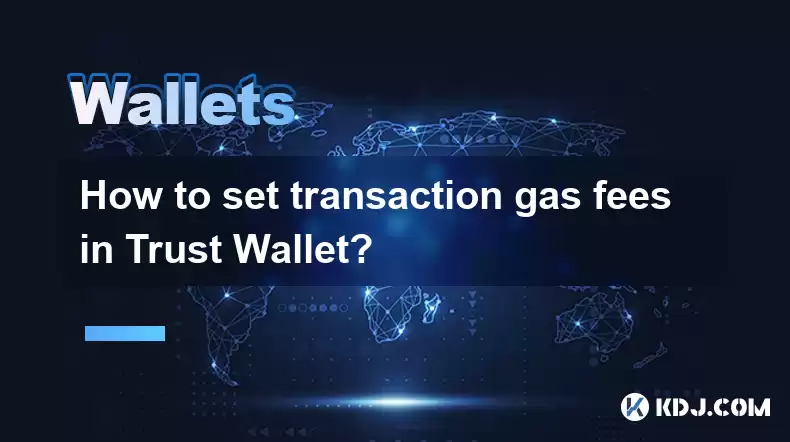-
 Bitcoin
Bitcoin $119000
-2.21% -
 Ethereum
Ethereum $4315
1.01% -
 XRP
XRP $3.151
-3.11% -
 Tether USDt
Tether USDt $0.0000
0.00% -
 BNB
BNB $808.5
-0.71% -
 Solana
Solana $175.8
-4.21% -
 USDC
USDC $0.9999
0.00% -
 Dogecoin
Dogecoin $0.2250
-3.92% -
 TRON
TRON $0.3469
1.77% -
 Cardano
Cardano $0.7818
-3.81% -
 Chainlink
Chainlink $21.47
-2.10% -
 Hyperliquid
Hyperliquid $43.30
-6.81% -
 Stellar
Stellar $0.4370
-2.84% -
 Sui
Sui $3.682
-4.40% -
 Bitcoin Cash
Bitcoin Cash $590.8
2.67% -
 Hedera
Hedera $0.2484
-5.20% -
 Ethena USDe
Ethena USDe $1.001
0.00% -
 Avalanche
Avalanche $23.10
-4.29% -
 Litecoin
Litecoin $119.2
-3.96% -
 Toncoin
Toncoin $3.409
0.90% -
 UNUS SED LEO
UNUS SED LEO $9.016
-1.29% -
 Shiba Inu
Shiba Inu $0.00001304
-3.82% -
 Uniswap
Uniswap $11.18
1.33% -
 Polkadot
Polkadot $3.913
-3.51% -
 Cronos
Cronos $0.1672
-3.08% -
 Dai
Dai $1.000
0.02% -
 Ethena
Ethena $0.7899
-4.70% -
 Bitget Token
Bitget Token $4.400
-1.23% -
 Pepe
Pepe $0.00001132
-5.93% -
 Monero
Monero $257.9
-6.44%
How to set transaction gas fees in Trust Wallet?
Trust Wallet simplifies gas fee settings with "Slow," "Average," and "Fast" options, influencing transaction speed on Ethereum and EVM-compatible networks.
Mar 28, 2025 at 04:50 am

How to Set Transaction Gas Fees in Trust Wallet
Trust Wallet, a popular mobile cryptocurrency wallet, doesn't directly allow users to set a precise gas fee like some desktop wallets. Instead, it offers options to influence the transaction speed and, consequently, the gas fee. Understanding how this works is crucial for successful transactions.
Understanding Gas Fees in Ethereum and EVM-Compatible Networks
Before diving into Trust Wallet's settings, let's clarify what gas fees are. Gas fees are transaction fees paid to miners or validators on networks like Ethereum and other EVM-compatible blockchains (Binance Smart Chain, Polygon, etc.) to process your transaction. Higher gas fees generally result in faster transaction confirmation times. Lower gas fees mean longer wait times. The actual cost is determined by the network's current congestion and demand.
How Trust Wallet Handles Gas Fees
Trust Wallet simplifies the process by offering pre-set options rather than manual input. You won't find a field to enter a specific Gwei value. Instead, you'll see options like "Slow," "Average," and "Fast." These options represent different gas price levels. Selecting "Fast" will likely result in a higher gas fee but a quicker confirmation. Choosing "Slow" will be cheaper but take longer. The exact Gwei value associated with each option varies dynamically based on network conditions.
Steps to Adjust Transaction Speed (and Implicitly, Gas Fees) in Trust Wallet
To adjust your transaction speed and indirectly influence the gas fee within Trust Wallet:
- Initiate a transaction: Begin the process of sending cryptocurrency. This might involve sending tokens, interacting with a decentralized application (dApp), or swapping tokens.
- Review the transaction details: Before confirming, Trust Wallet will display a summary of the transaction, including an estimated gas fee. This is an estimate and may vary slightly.
- Select your speed preference: You'll see options like "Slow," "Average," and "Fast" (or similar terminology). Choose the speed that best balances your need for speed against the cost of the gas fee. This selection directly influences the gas price used for your transaction.
- Confirm the transaction: Once you've selected your preferred speed, review all details one last time and confirm the transaction. Your transaction will then be broadcast to the network.
Factors Affecting Gas Fees Beyond Trust Wallet's Control
Remember that Trust Wallet doesn't directly control the gas fees. The actual cost is dictated by the blockchain network itself. Several factors influence the network's gas prices:
- Network Congestion: High network activity leads to higher gas fees. Times of increased user activity often result in higher costs.
- Transaction Complexity: More complex transactions (like those involving multiple tokens or smart contract interactions) generally require more gas and thus cost more.
- Token Demand: The popularity and demand for specific tokens can impact the gas fees associated with their transactions. High-demand tokens may have higher transaction costs.
Advanced Considerations for Managing Gas Fees
While Trust Wallet simplifies gas fee management, advanced users might explore other strategies:
- Monitoring Gas Price Tracking Websites: Websites like Etherscan or GasNow provide real-time gas price data. This can help you anticipate potential gas fee fluctuations.
- Waiting for Lower Gas Prices: If you're not in a rush, consider waiting for periods of lower network congestion to send your transactions at a lower cost. Gas prices fluctuate constantly.
- Using Alternative Networks: Some tokens are available on multiple networks. Consider using a less congested network with lower gas fees if possible.
Frequently Asked Questions
Q: Can I manually set the exact Gwei value in Trust Wallet?
A: No, Trust Wallet doesn't allow for manual Gwei input. You can only choose from pre-defined speed options that indirectly affect the gas fee.
Q: What happens if I choose "Slow" and my transaction fails?
A: While less likely, a transaction can fail even with a higher gas fee. If it fails with a "Slow" setting, it's usually due to factors outside the gas fee, such as insufficient funds or an invalid transaction.
Q: Are the gas fee estimates in Trust Wallet always accurate?
A: The gas fee estimates are approximations and can vary slightly from the final cost. Network conditions can change rapidly.
Q: My transaction is taking a long time; what should I do?
A: If your transaction is taking unusually long, check the network status. High congestion can significantly delay confirmation times. You can also check the transaction hash on a blockchain explorer.
Q: How can I reduce gas fees when sending large amounts of cryptocurrency?
A: Sending smaller, more frequent transactions can sometimes reduce the overall gas fees compared to a single large transaction. However, this involves more transactions and more fees in the long run. The optimal strategy depends on the specific circumstances.
Q: Will I lose my cryptocurrency if I don't pay enough gas fees?
A: Your transaction will likely fail if you don't pay enough gas fees. Your cryptocurrency will remain in your wallet, but the transaction won't be processed. You will need to try again with a higher gas fee or at a less busy time.
Disclaimer:info@kdj.com
The information provided is not trading advice. kdj.com does not assume any responsibility for any investments made based on the information provided in this article. Cryptocurrencies are highly volatile and it is highly recommended that you invest with caution after thorough research!
If you believe that the content used on this website infringes your copyright, please contact us immediately (info@kdj.com) and we will delete it promptly.
- Circle Stock, Blockchain, and Strong Earnings: A Bullish Outlook
- 2025-08-12 22:30:12
- Nexchain, Crypto Presale, and Rankings: What's the Buzz?
- 2025-08-12 22:30:12
- Arc Blockchain: Circle's Layer-1 Play Amidst $428 Million Loss
- 2025-08-12 20:30:13
- XRP Price: Riding the Bull Cycle Wave or Hitting a Wall?
- 2025-08-12 20:50:12
- Cloud Mining in 2025: Chasing Passive Income and High Returns
- 2025-08-12 20:30:13
- XRP Price Forecast: Can XRP Hit $8, $12.60, or Even $100? Surge Drivers Analyzed
- 2025-08-12 21:10:13
Related knowledge

How to manage your portfolio in Exodus wallet
Aug 08,2025 at 10:07pm
Understanding the Exodus Wallet InterfaceThe Exodus wallet is a non-custodial cryptocurrency wallet that supports a wide range of digital assets. When...

How to reset your MetaMask password
Aug 08,2025 at 01:28pm
Understanding the MetaMask Password Reset ProcessMany users confuse the MetaMask password with the seed phrase or private key, but they serve differen...

How to buy Dogecoin on MetaMask
Aug 08,2025 at 03:42am
Understanding Dogecoin and MetaMask CompatibilityDogecoin (DOGE) is a popular meme-based cryptocurrency that operates on its own blockchain, originall...

How to switch between networks in Trust Wallet
Aug 09,2025 at 11:07am
Understanding Network Switching in Trust WalletSwitching between networks in Trust Wallet allows users to manage assets across different blockchains, ...

How to set up Face ID for MetaMask
Aug 12,2025 at 02:42am
Understanding Face ID and Its Role in MetaMask SecurityMetaMask is a widely used cryptocurrency wallet that allows users to interact with the Ethereum...

How to set up Face ID for MetaMask
Aug 11,2025 at 09:28am
Understanding Face ID and Its Role in MetaMask SecurityFace ID is a biometric authentication system developed by Apple that uses facial recognition to...

How to manage your portfolio in Exodus wallet
Aug 08,2025 at 10:07pm
Understanding the Exodus Wallet InterfaceThe Exodus wallet is a non-custodial cryptocurrency wallet that supports a wide range of digital assets. When...

How to reset your MetaMask password
Aug 08,2025 at 01:28pm
Understanding the MetaMask Password Reset ProcessMany users confuse the MetaMask password with the seed phrase or private key, but they serve differen...

How to buy Dogecoin on MetaMask
Aug 08,2025 at 03:42am
Understanding Dogecoin and MetaMask CompatibilityDogecoin (DOGE) is a popular meme-based cryptocurrency that operates on its own blockchain, originall...

How to switch between networks in Trust Wallet
Aug 09,2025 at 11:07am
Understanding Network Switching in Trust WalletSwitching between networks in Trust Wallet allows users to manage assets across different blockchains, ...

How to set up Face ID for MetaMask
Aug 12,2025 at 02:42am
Understanding Face ID and Its Role in MetaMask SecurityMetaMask is a widely used cryptocurrency wallet that allows users to interact with the Ethereum...

How to set up Face ID for MetaMask
Aug 11,2025 at 09:28am
Understanding Face ID and Its Role in MetaMask SecurityFace ID is a biometric authentication system developed by Apple that uses facial recognition to...
See all articles

























































































